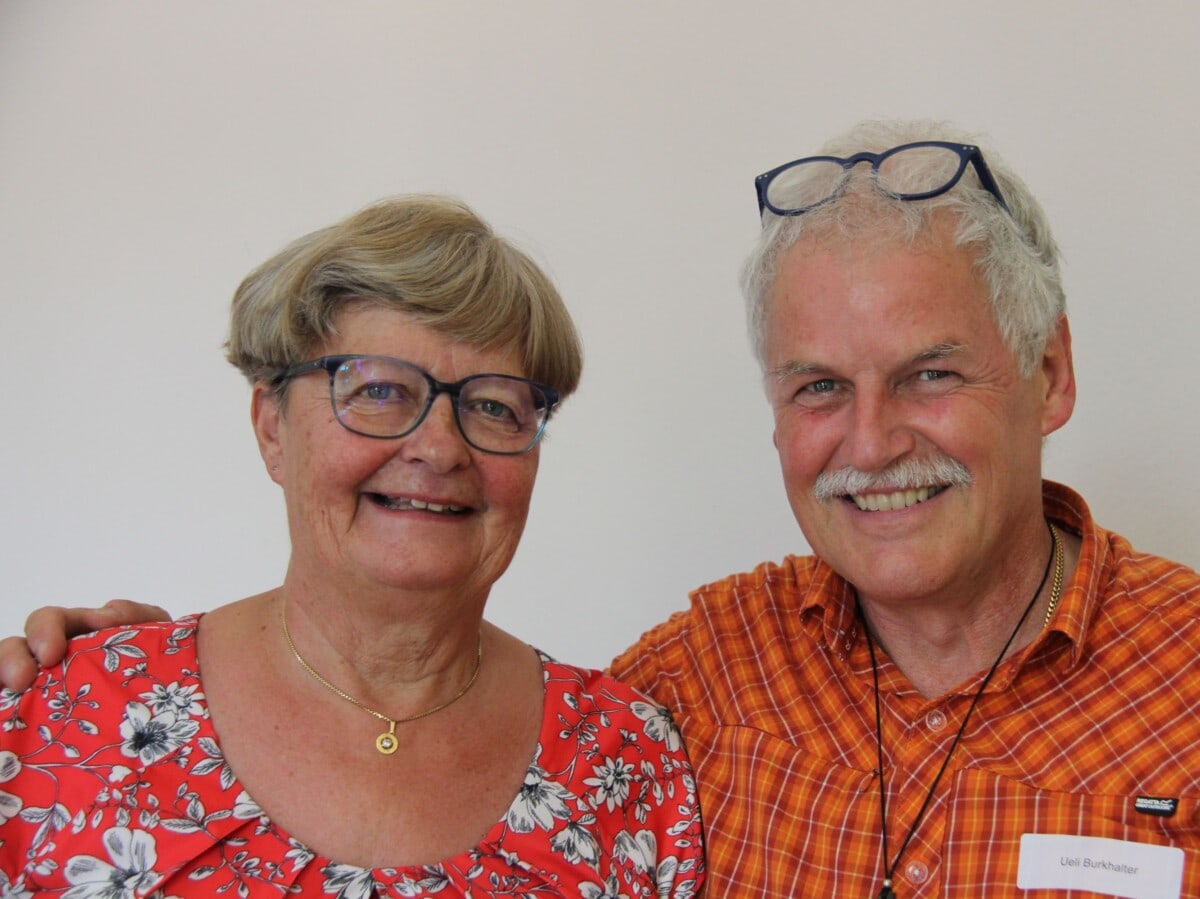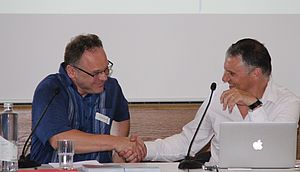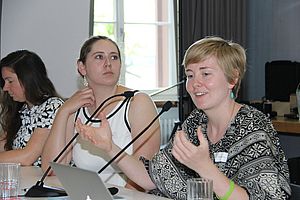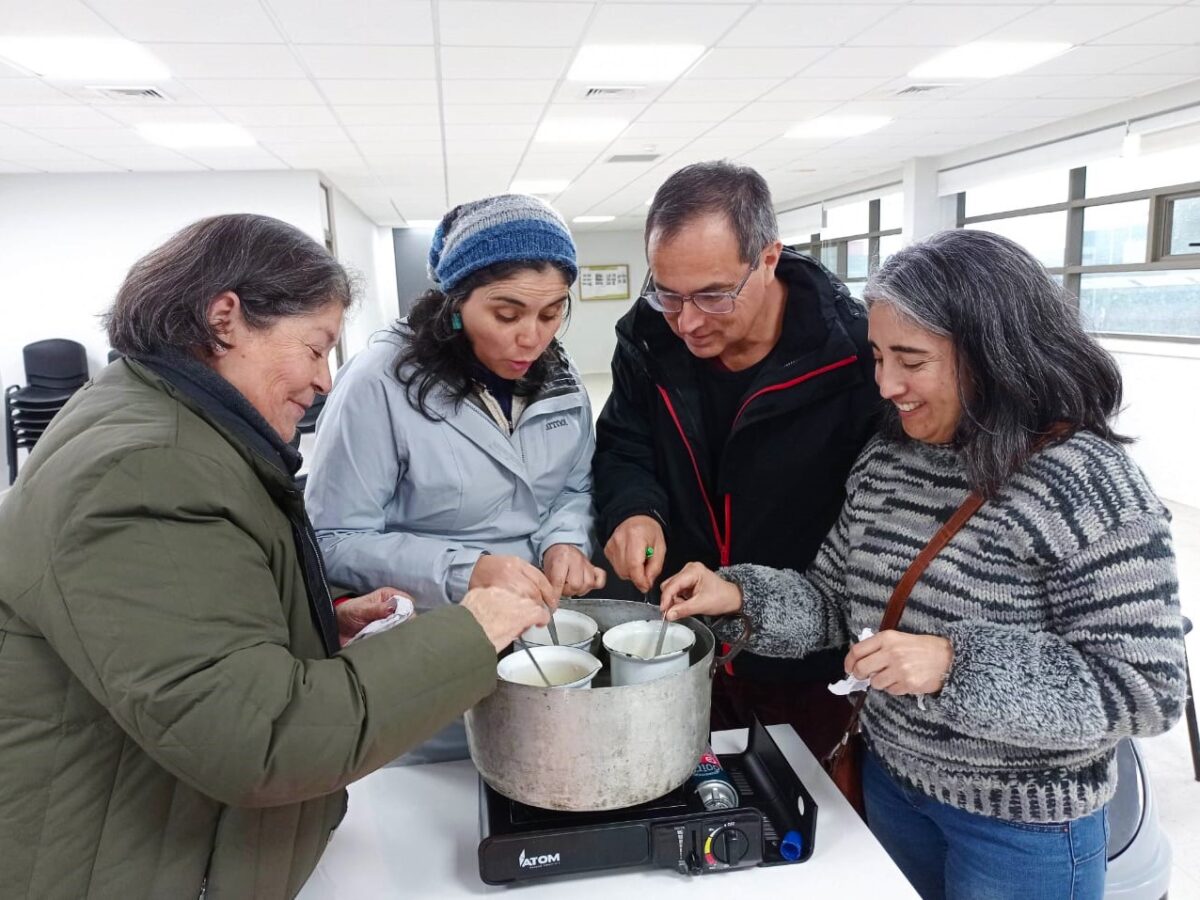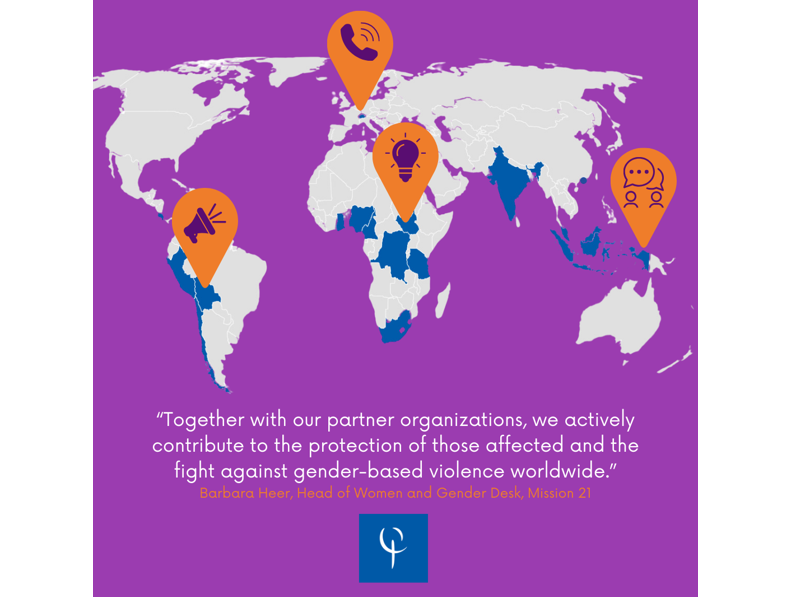The relationship between Mission 21 and the churches has changed constantly in the course of the 200-year history of the work. Where does this relationship stand today, and how can it be shaped and made fruitful for all sides? This was the question that President Daniel Frei put at the center of this year's meeting of the Continental Assembly Europe (CEC). Various speakers took a stand on this.
Claudia Bandixen, the outgoing director of Mission 21, addressed the representatives of the churches present at this year's CVE with a vote of thanks and a request. In her words of thanks, she emphasized the importance of the churches for the work: "Without you, without the help of so many and without the deep conviction of the various national churches that a mission is important and necessary, that this mission is important and necessary, Mission 21 would no longer exist." She followed her thanks with an appeal: "Please continue to carry this mission in its uniqueness. I ask you to accompany the mission, to think and actively shape it."
Support is vital
In fact, the support of the churches is vital for Mission 21. In the financial area, this is obvious. More than half of the work's funds come from donations. Over 45 percent of these donations come from church campaigns and collections. The cantonal churches contribute another 14.6 percent, including contributions from the Federation of Swiss Protestant Churches FSPC.
Relationship is more than money transfer
What was striking in the discussions at the CVE was that finances were not the focus, but rather the cultivation of relationships. In fact, the relationship between Mission 21 and the churches has always been more than a transfer of funds.
Jochen Kirsch, director of Mission 21 from September 2019, said: "Mission 21 and the churches need each other. Churches today need to ask themselves: What does it mean to be part of the global church as a missionary church? As a mission agency, we can help raise this profile. Conversely, Mission 21 needs the churches to be close to the grassroots. We need their support and feedback." During his term of office, he said, it is planned to visit church leaders and intensify the dialogue. This is a major concern for him.
Jochen Kirsch, designated director of Mission 21, and Daniel Frei, president of KVE.
Rooting in the parishes is to be strengthened
Heinz Fäh, church councilor of the St. Gallen cantonal church and part of the FSPC committee, took up this theme: "Mission 21 must find new ways to network with the church base and to take root there," said Fäh. However, he also took his own institutions to task: "This rooting will be spurred if the cantonal churches stand by Mission 21." Fäh suggested a greater proximity of Mission 21 to the FSPC (in the future EKS), which triggered controversial reactions in the plenum.
But why should the churches support Mission 21 when HEKS and Bread for All also offer international development cooperation projects? Heinz Fäh summed it up at the end of his speech: "Mission 21 has something that the aid organizations do not have: Long-term partners, church partners, experience in interreligious dialogue and experience in working on the concept of mission."
Young people with more influence
At the CVE it became clearly visible that the advantages of Mission 21 mentioned by Fäh are not the only ones. Last year, it was decided to better involve the youth delegates and give them the right to vote. This year, for example, many young people participated in the votes of the CDE, and the board was expanded with the addition of youth coordinator Magdalena Rieder. This is not the only way Mission 21 makes offers to the churches for young people. In the area of work with young people, an expansion was pushed forward. A youth ambassador program is aimed at young adults who want to gain experience abroad with Mission 21, exchange views on faith issues there and become part of an international youth network. Numerous other offers make it possible for young people in particular to do outreach abroad.
However, the offerings are not limited to young people; the existing work in the church congregations remains important and central. Mission 21's relationship with the churches also extends far beyond Switzerland. Of the more than 70 international partner organizations of the work, a large majority are church-based. Through these partnerships, not only international development cooperation is carried out, but the worldwide church network is strengthened.
Magdalena Rieder, youth coordinator on the board of KVE (left) and Veronika Henschel from young@mission21
Development cooperation put to the test
Not only the relationship between Mission 21 and the churches was reflected on at the CDF, but also the meaning of development cooperation, which constitutes the work. Markus Mugglin, economist and former senior employee of Radio SRF, took a critical look at the topic of development cooperation with seven theses. Is it necessary, does it help or rather harm, what is its significance? Guests from three continents responded to Mugglin's theses: Halim Pratama, youth coordinator of Mission 21 in Indonesia, Paska Aciya Nimiriano, responsible for the women's department of the partner church in South Sudan, and Magdalena Rieder, youth coordinator from Switzerland. Their common denominator: development cooperation does not solve all the problems of this world and can certainly be viewed critically. But it is indispensable to initiate improvements and to support disadvantaged people so that they gain more freedom to shape and act in their lives.
New board member in the KVE
Ueli Burkhalter was newly elected to the KVE board. He succeeds Pia Grossholz. Pia Grossholz served on the KVE board for 16 years. President Daniel Frei thanked her for her work in building up the KVE and her unceasing, valuable and competent commitment.
Her successor Ueli Burkhalter was elected unanimously. He is a synodal councilor of the Reformed Churches Bern-Jura-Solothurn for the area of OeME migration and pastor in the parish of Diessbach bei Büren in the Bernese Seeland. In the summer of 2018, he studied for three months at ISEAT (Instituto Superior Ecuménico Andino de Teología) in La Paz, Bolivia, a partner of Mission 21.
I walk with
Special guest at this year's CVE was Ebed Grijalva Yauri. She is a member of the "Iglesia Evangélica Peruana" (Peruvian Evangelical Church) and heads CEDEPAS-Centro, a partner organization of Mission 21 in Peru.
For one year, Ebed Grijalva Yauri is also the face of Mission 21's "I walk with..." campaign. Symbolically, Mission 21's women's network accompanies one influential female actor from each partner organization. The high-profile campaign puts the spotlight on their achievements for gender justice. In addition, the network demonstrates its solidarity with her and all those who stand up for women's human rights on a daily basis, sometimes under the most difficult conditions.
Ebed Grijalva Yauri reported at the CVE on burning issues in her continent of Latin America. These include targeted murders of women (feminicides). Ebed Grijalva Yauri called for people to join the "Thursdays in Black" action, which expresses a shared commitment to gender justice every Thursday by wearing black clothing. She also called on people to support the "I walk with..." campaign - whether by donating to Mission 21's work for gender justice or by taking their own action for women's rights.
Text and photos: Miriam Glass, Mission 21
You can also download this text with additional images as a PDF:
